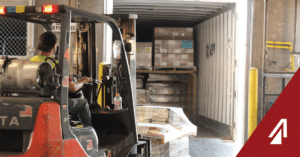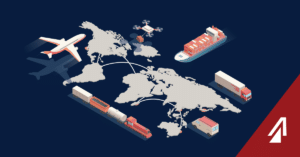Cost, Time, Customer Demands, Competitors, Resources …These are just a few of the many factors that impact a company trying to grow, strengthen or improve upon its core competencies. How can a company overwhelmed by these factors effectively control and optimize its complex supply chain?
Recent Third-party Logistics (3PL) industry statistics show that an overwhelming majority of Fortune 500/5000 companies utilize a 3PL. Third-party logistics providers specialize in integrated operation, warehousing, and transportation services which can be scaled and customized to customers’ needs based on market conditions, such as the demands and delivery service requirements for their products and materials. Companies that outsource their supply chain understand that in order to stay competitive and meet customer demand they need logistics experts to handle their business.
Here’s why you should consider outsourcing to a 3PL:
1. Cost Savings
Outsourcing to a 3PL company can provide consistent and often significant year-over-year savings. Do what you do best! A 3PL removes the need for your company to invest in staffing and an array of technology necessary to support logistics planning, warehousing, and transportation management. Engineers and analysts become your company’s partner to identify optimization opportunities, drive change and find savings within your supply chain. Your company’s active logistics plan is monitored for continuous design improvements and achievement of KPIs. A 3PL’s vast network of facilities, extensive carrier base, regional account management and synergy with other customer’s supply chain operations provide value-added opportunities for additional savings in your supply chain.
2. Capital Investment Abilities
Cost savings, mentioned in the first point, provide your company additional capital to invest in other aspects of your business, therefore, fostering innovation, expansion, and growth. Resources that once were tied into sourcing the correct resources can now be reallocated to investments that improve your service or product.
3. Supply Chain Flexibility
The scalability of a 3PL in labor, transportation and overall capacity allows broad flexibility for your company to meet seasonal demands and/or unexpected freight movements without worry.
4. Performance and Operations Improvement
A 3PL can bring leading-edge technology, an extensive network, industry expertise and continuous improvement practices to your company’s supply chain. Outsourcing to a 3PL provides the opportunity to objectively analyze your supply chain and suggest changes that often lead to improvements in service to your customers or higher profitability.
5. Technological Resources
Many 3PL companies have invested time, resources, and money in order to provide their customers with state-of-the-art Transportation Management Systems (TMS). By partnering with a 3PL, a company is able to take advantage of that cutting-edge technology and use it for real-time visibility, logistics planning, and process improvement. Lastly, data that can be gathered from your company’s supply chain provides valuable business intelligence critical for improvement and oversight. Advanced data reporting and metrics are keys to seeing the trends that may otherwise not be evident. If the data and key performance indicators justify an adjustment or continued efforts, then a company can pursue those decisions with confidence.



